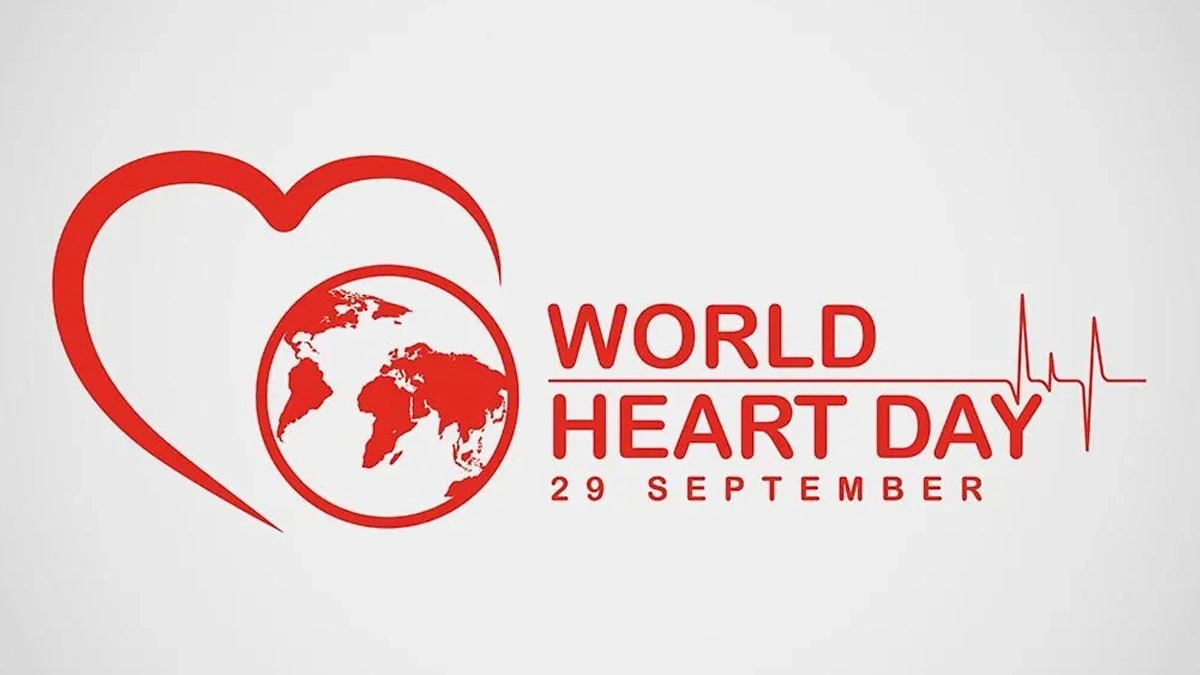Okay, let’s be honest: another awareness day? Seriously? But stick with me for a second. World Heart Day isn’t just another calendar entry. It’s a global nudge a reminder to check in with the ticker that keeps us all going. And this year, it feels especially crucial. Here’s the thing: Heart disease is sneaky. It doesn’t always shout. Sometimes, it whispers, and if you’re not listening, well… that’s the problem.
Beyond the Red Ribbons | The Real Heart of the Matter

So, why should you care, sitting there with your coffee (or maybe something stronger no judgment)? Because heart disease remains a leading cause of death worldwide. But here’s where it gets interesting. It’s not just about genetics anymore. Our modern lifestyles stress, junk food, lack of exercise are massive contributors. According to theWorld Health Organization (WHO), most cardiovascular diseases can be prevented by addressing behavioral risk factors such as tobacco use, unhealthy diet and obesity, physical inactivity and harmful use of alcohol.
And that’s where World Heart Day comes in. It’s not just about wearing red or donating (though those are great, too!). It’s about taking concrete steps to understand and mitigate your personal risk. But how? Let’s dig in.
Small Changes, Big Impact | Your Heart-Healthy Toolkit
A common misconception I see is that getting heart-healthy requires drastic changes. Nope. It’s about incremental improvements. Think of it as a marathon, not a sprint. A good start would be understanding your cardiovascular health . Here’s a simple checklist:
- Know your numbers: Blood pressure, cholesterol levels, BMI. These are your baseline stats. Get them checked regularly.
- Move your body: Aim for at least 30 minutes of moderate-intensity exercise most days of the week. Walk, dance, bike—whatever gets you moving. And try to do it regularly .
- Eat real food: Cut back on processed foods, sugary drinks, and excessive salt. Load up on fruits, vegetables, and whole grains.
- Manage stress: Easier said than done, I know. But chronic stress is a heart killer. Find healthy coping mechanisms—meditation, yoga, spending time in nature, talking to a therapist.
- Quit smoking: This one’s a no-brainer. If you smoke, quit. Your heart will thank you immediately.
These simple steps can dramatically reduce your risk of heart disease. It isn’t rocket science; it’s about making conscious choices every day.
The Silent Killer | Recognizing the Signs
Sometimes, heart problems manifest subtly. Don’t ignore these warning signs:
- Chest discomfort: Pressure, squeezing, fullness, or pain in the center of your chest. This can be a sign of angina or a heart attack.
- Shortness of breath: Feeling winded even with minimal exertion.
- Pain in other areas: Discomfort radiating to your arms, back, neck, jaw, or stomach.
- Lightheadedness or dizziness: Feeling faint or unsteady.
- Swelling: Swelling in your ankles, feet, legs, or abdomen.
The key is to trust your gut. If something feels off, don’t dismiss it. See a doctor, especially if you have risk factors like high blood pressure, high cholesterol, diabetes, or a family history of heart disease. Early detection is everything. According to the American Heart Association, understanding symptoms is crucial for early intervention and better outcomes. And early outcomes are always better.
The Ripple Effect | Spreading Heart Health Awareness
World Heart Day also presents an opportunity to spark conversations about heart-healthy lifestyle choices with your friends, family, and community. Share your experiences, encourage others to get checked, and advocate for healthier environments. After all, we’re all in this together. A simple way to contribute to the global awareness is sharing heart-health information on social media.
Consider organizing a local heart awareness campaign in your neighborhood. Partner with local schools and community centers to educate people about the importance of preventive measures and regular check-ups.
What About Children’s Heart Health?
One area often overlooked is children’s heart health education . Instilling heart-healthy habits early in life is crucial. Encourage kids to be physically active, limit screen time, and make healthy food choices. Schools can play a vital role by incorporating heart health education into their curriculum and promoting healthy eating habits in cafeterias.
FAQ | Your Burning Heart Questions Answered
Frequently Asked Questions about World Heart Day
What exactly is World Heart Day anyway?
It’s an annual global event on September 29th to raise awareness about cardiovascular disease and how to prevent it.
I’m young and healthy. Do I really need to worry about heart health?
Yes! Prevention starts early. Establishing healthy habits now will pay off big time later.
What if I have a family history of heart disease?
Talk to your doctor. They can assess your risk and recommend appropriate screening and prevention strategies.
I hate exercising. What’s the easiest way to get started?
Find an activity you enjoy! Start small a 10-minute walk, a dance class and gradually increase the intensity and duration.
Is there a specific diet for heart health?
Focus on a balanced diet rich in fruits, vegetables, whole grains, lean protein, and healthy fats. Limit processed foods, sugary drinks, and excessive salt.
Are online heart health resources reliable?
Be cautious. Stick to reputable sources like the American Heart Association, the World Heart Federation, and the National Institutes of Health.
In conclusion, World Heart Day isn’t just another day on the calendar; it’s a personal invitation to take control of your well-being. It’s a reminder that the power to protect your heart lies within your daily choices. This isn’t about fear; it’s about empowerment. It’s about recognizing that small changes, consistently applied, can lead to a longer, healthier, and more vibrant life. So, take a moment today to consider your heart. What can you do, starting now, to give it the love and care it deserves? Because, ultimately, your heart is the engine that powers everything else. And it deserves the best.




